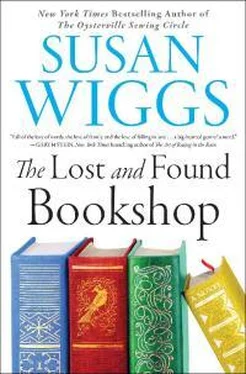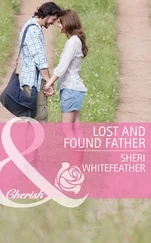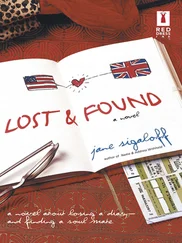Tess and Dominic slid into the row behind Natalie. Tess leaned forward and gave her shoulder a squeeze. Natalie acknowledged the touch with a pat of her hand.
Cleo and Bertie, who both worked in the bookstore, arrived and took their seats on Natalie’s other side.
“Hi, guys,” she whispered. “Thanks for being here.”
“How are you holding up?” asked Bertie. “Sorry for speaking in clichés, but I really want to know, sweetie.” An aspiring actor, he was lithe and graceful, his whole body expressing feelings without words—in the angle of his head, the slant of his shoulders. Bertie was smart and funny and melancholy, chasing his dream of starring in a major theater production. He’d loved her mother, who had encouraged his acting career by giving him time off for auditions and rehearsals whenever he needed it.
“Grandy and I are keeping each other company,” Natalie said. “Honestly, I’ve never had my heart ripped out of my chest. But I imagine this is what it feels like.”
Cleo’s eyes were as dim as twilight, gleaming with a mist of sadness. She nodded and dabbed at her cheeks with a tissue. “Damn. You remind me so much of her.”
“Do I?”
Bertie leaned forward. “Hell, yeah. In the best possible way.”
Cleo was Natalie’s age, and had grown up in the neighborhood. The girls used to play together in Portsmouth Square, surrounded by Chinese grannies sipping their milk tea and playing board games. They’d snack on soft buns filled with sweet coconut, and when it rained, they’d duck into the curio shops or the Golden Gate Fortune Cookie Factory, their senses dazzled by the delicious, sugary aroma.
Cleo was Blythe’s second-in-command, helping manage the shop and, in her downtime, writing plays.
Frieda Mills, Blythe’s longtime friend, had volunteered to officiate the service. Now she stepped up to the podium. Her defiantly unkempt hair, threaded with gray, formed a nimbus around her small, drawn face.
The music subsided as Frieda adjusted her mic. “Good morning and welcome,” she said. “On behalf of Natalie and Andrew Harper, I want to thank you for coming.”
She gazed out at the crowd. “I’ve known Blythe since we were freshmen in college. She was the roommate I dreaded having—messy and talkative, better looking than me, never on time, constantly in motion, cluttering every space she inhabited.” She said this with a smile, and the smile trembled as she paused and took a deep breath. “In spite of all this, or maybe because of all this, I loved her like a sister. We celebrated holidays together, raised our kids together . . .”
Frieda’s two boys had each, on occasion, asked Natalie to dances and parties. She—and probably the boys as well—suspected they were being nudged together by their mothers.
“And then there were the books,” Frieda said. “Even in college, she had so many books that we used them for furniture—step stools, benches, nightstands, shelves for other books . . .”
Natalie could so easily picture that. When she was very small, her mother used to tell her that books were alive in a special way. Between the covers, characters were living their lives, enacting their dramas, falling in and out of love, finding trouble, working out their problems. Even sitting closed on a shelf, a book had a life of its own. When someone opened the book, that was when the magic happened.
“My friend Blythe often said her life was a grand adventure,” Frieda continued. “Books were her passion, so I wanted to share one of her favorites.” She put on a pair of wire-rimmed reading glasses and opened a well-worn copy of Charlotte’s Web .
The passage from the classic novel was filled with lovely prose that took on new poignancy and concluded with Charlotte’s famous words: “After all, what’s a life anyway? We’re born, we live a little while, we die.”
Natalie had heard the reading many times, but now she clung to Charlotte’s wisdom, hoping with all her heart that her mother had left with that same calm, matter-of-fact acceptance. Haunted by images of those last moments, Natalie reflected that this did not seem possible given the way Blythe had died.
Other speakers reminisced about her mother. In cracked voices, they recounted memories of browsing the stacks with the well-read bookseller, or relaxing in the tiny café and basking in the sense of community Blythe cultivated. The tributes were lavish and heartfelt, a clear indication of the many lives she had touched. Through her shock and grief, Natalie felt a sad glimmer of understanding of why her mother had been so devoted to the shop.
The readings and tributes were followed by a song, and they were all invited to join in. The lyrics were printed in the program. “No Rain” by Blind Melon had been a favorite of Blythe’s, expressing the glory of escaping into the pages of a book. The woman playing guitar was a frequent patron of the shop. She had contacted Natalie and Frieda as they were organizing the program and asked to perform in Blythe’s honor.
As the lyrics of the song came out of Natalie on a shaky breath, she wished she could do exactly as the words expressed— Escape, escape, escape.
* * *
Andrew Harper felt the soft caress of the music on his face as he waited. Waited for what?
His mind darted away in search of the answer. It was a slippery process, like trying to catch polliwogs in the pond shallows in springtime. He glanced over at the young woman sitting beside him. She had pale skin and dark curly hair, and a face so beautiful and so sad it cracked his heart in two.
Now that he was old and plagued by strange fugues of forgetfulness, Andrew was learning to pay attention to certain details he used to filter out—sounds and smells, colors and fleeting images. Focusing on one thing—the timbre of a voice, the narrative on a page in a book—was increasingly difficult and disturbing. Walking out onto the street was like entering an amphitheater into an overwhelming and deafening cacophony of confusion.
He shored up his thoughts. He had to teach himself to think in a different way.
Although he knew Dr. Yang would disapprove, he had skipped taking his tablets this morning. Supposedly the pills were keeping him from feeling anxious. Perhaps that was indeed the case, but he needed a clear head to face the day, and the meds made him drowsy. He must not face this day in a state of drowsiness.
It was an important day. He couldn’t remember why.
He felt the sad young woman watching him through eyes bruised by grief. He looked down at the printed program card in his hand. It was beautiful, the thick stock imprinted by the letterpress machine in the basement of the bookshop. After he’d closed down his typewriter repair business and founded the bookstore with Blythe, no one had wanted to move the heavy machine, so they kept it and occasionally used it for special printings—a birth announcement when Natalie was born, the grand opening of the bookstore three decades ago, a gallery showing for Charlie Wong. Andrew used to tell Blythe he was getting old while waiting to print an announcement that she was finally getting married.
That always made her laugh and say he’d raised the bar too high; she would never find a man who could measure up to him. After what had happened with the fellow who had fathered Natalie, Andrew was glad she could laugh at all.
Then, in a blink, the situation came clear to him. The young woman beside him was Natalie, his granddaughter, Natalie. Her regard felt like a whir of moth wings against his cheek, powdering his skin with a residue like May Lin’s dusting powder, back when she had lived with him and they were happy.
He summoned a smile for Blythe. No, not Blythe. Natalie. Blythe was gone, suddenly and irretrievably, like a zephyr shooting into the night sky, leaving a trail of moonlit particles that swirled in brief, unspeakable beauty, and then faded into nothing.
Читать дальше












